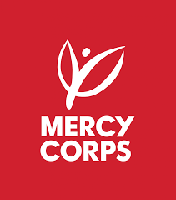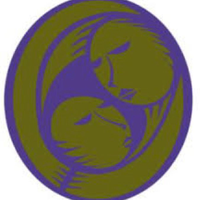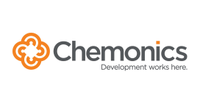Request for Applications (RFA)-Youth Access to Water in Agriculture
Job Description
The Feed the Future Zimbabwe Fostering Agribusiness for Resilient Markets (FARM) Activity is awarding grants to Zimbabwean non-governmental, and private sector entities to provide technical assistance on water management, relevant water technologies and establish 30 water demonstration sites in Manicaland and Masvingo provinces targeting households and agri-businesses of youth farmers. The objective of the grant is to improve knowledge on water management, to promote youth farmers adoption of water technologies and to improve youth access to financial resources to sustainably increase production and productivity. The grant will support youth farmers to gain knowledge on water management and technologies, and access credit facilities to establish different water technologies suitable for the youth farmer’s needs to increase productivity.
The project will hold pre-application workshops on the days and times listed below.
1. Venue: Chipinge
March 5,2024
9:00AM-12:00PM
172 Moodie Street, Chipinge, Zimbabwe
2. Chiredzi
March 6,2024
10:00AM-1:00PM
5022 Westwood
Chiredzi, Zimbabwe
This workshop will allow eligible and interested applicants the chance to ask questions about the RFA and receive guidance on how to complete the application form. Interested applicants that meet the eligibility requirements defined in Section III below and would like to attend this workshop must confirm their attendance by sending the participant’s name and the organization’s name to [email protected] Only one person may attend from each organization. When confirming attendance, please note if the person has any special needs to access the workshop facilities. No reimbursement for costs of attendance will be met.
Duties and Responsibilities
FARM through its Youth Access to Water for Agriculture (YAWA) activity intends to engage with a private sector company that focuses on water technology services to provide training, technical assistance, and services to youthful farmers on water management and new water technologies. The private sector company will be expected to work with the youth and encourage self-sponsorship to adopt improved water technologies and also foster linkages and arrangements with diverse financing partners i.e. ( Banks, MFI, companies, institutions) that will provide financial resources for viable youths to access short- and medium-term loans for improved water technologies i.e. (drip irrigation, water pumping systems, hand pumps, borehole drilling, deep wells etc).
The grant’s objective is to improve knowledge on water management, promote youth farmers’ adoption of water management technologies and improve youth access to financial resources to sustainably increase production and productivity. The grant will support youth farmers to gain knowledge on water management and technologies, and access credit facilities to establish different water technologies suitable for the youth farmer’s needs to increase productivity, incomes and build the resilience of the youth farmers. YAWA intends to establish 30 demonstration sites targeting 30 youth farmers (3 from each operating district) that have the prerequisite skills to successfully engage in agriculture and have the viability to invest in water technologies to commercialize their agribusiness. The established water demonstrations will showcase affordable, effective, and efficient water technologies that can supply irrigable water to dryland plots including use of ditches, pipes, streams, pumps, boreholes, sprinklers, and drip kits. The purpose is to ensure all year diverse crop production. The approach requires the private sector company to provide training and services on water management technologies and facilitating self-finance and/or access credit facilities to finance the adoption and establishment of appropriate water technologies suitable to the youthful farmers’ needs.
Improving access to water for youth beneficiary households has the potential to yield the following outcomes:
•
Increased production, productivity, and incomes. The farmer will be able to engage in diverse value chains that bring multiple streams of income.
•
Build the youth farmers' resilience as increased incomes will allow them to invest in productive assets.
•
Improved dietary diversity from producing diverse crops and livestock.
•
Improved household hygiene because of improved access to water for domestic use.
•
Reduce time spend by women and girls fetching water.
•
Improve gender and social inclusion outcomes.
The target is to engage 30 young farmers (12 Manicaland and 18 Masvingo) of which at least 50 percent will be women in the adoption and establishment of water demo sites. Investments in water will include improving the volume and access to water, improving the quality of water, and improving the efficiency of water use. Water management techniques need to cover rainwater, groundwater, water from rivers or streams, stored water, and distribution of water.
FARM recognizes that some grantees may need technical assistance to carry out the activity more effectively. Consequently, applicants are encouraged to specify their needs for technical assistance and/or training in their application.
Qualifications and Experience
IIIA. ELIGIBLE RECIPIENTS
•
Applicants must be a registered Zimbabwean entity formally constituted, recognized by and in good standing with appropriate Zimbabwean authorities, and compliant with all applicable civil and fiscal regulations.
•
Applicants may only submit one application per prime organization under this RFA.
•
Applicants must demonstrate successful past performance in implementing integrated development programs related to FARM priority areas including climate smart agriculture, market linkages, gender and positive youth development.
•
Applicants must have established outreach capabilities with linkages to the beneficiary group(s) identified in the program description. This should be reflected by the incorporation of the beneficiary perspective in the application.
•
Applicants must display sound management in the form of financial, administrative, and technical policies and procedures and present a system of internal controls that safeguard assets; protect against fraud, waste, and abuse; and support the achievement of program goals and objectives.
FARM will assess this capability prior to awarding a grant.
•
Applicants must sign certain required certifications prior to receiving a grant. The certifications are attached to this solicitation (Annex C) and the FARM Activity will review them with applicants.
•
For any grant award(s) resulting from this solicitation that is other than in-kind, equivalent to $25,000 USD or more, and has no anticipated subawards, grantees will be required to provide a Unique Entity Identifier (UEI) at the time of award. If the applicant already has a UEI number it should be included in their application. Otherwise, applicants will be expected to get a UEI number before an award is made. FARM will assist successful applicants with this process. More information on UEIs can be found here.
•
The project will work with the successful grantee to draft a marking and branding plan which will be annexed to the grant agreement.
•
Faith-based and community groups will receive equal opportunity for funding in accordance with the mandated guidelines laid out in ADS 303.3.28 except for faith-based organizations whose objectives are for discriminatory and religious purposes, and whose main objective of the grant is of a religious nature.
The FARM Activity encourages applications from women led, youth led and new organizations who meet the above eligibility criteria.
How to Apply
IVA. INSTRUCTIONS TO APPLICANTS
Applicants must propose strategies for implementing the program description described above, introducing innovations appropriate to their organizational strengths.
IVA1. PRE-AWARD RISK ASSESSMENT
All organizations selected for the award are subject to a pre-award risk assessment conducted by FARM, to ascertain whether the organization has the minimum management capabilities required to handle US government funds. The applicant self-assessment is the first step in the pre-award risk assessment process. The Applicant Self-Assessment Form is contained in Annex D.
IVA2. GRANT APPLICATION
Templates to be utilized when developing the concept paper are provided in Annex A-B. All grant activity costs must be within the normal operating practices of the Applicant and in accordance with its written policies and procedures. For applicants without an audited indirect cost rate, the budget may include direct costs that will be incurred by the Applicant to provide identifiable administrative and management costs that can be directly attributable to supporting the grant objective.
The concept paper must be signed by an authorized agent of the Applicant.
Concept papers shall be submitted in English and may not be more than 10 pages.
The application package (Annex A – B) and a copy of the Applicant’s valid legal registration should be
submitted in electronic copy (word and excel files) to [email protected] and should
reference RFA No. FARM_RFA_06. The FARM Activity will continue to accept applications until 17:00
local time, on March 21, 2024. Late or unresponsive applications will be considered at the sole discretion of the FARM Activity.
Please submit all questions concerning this solicitation to [email protected] to the
attention of Onesimo Sibanda, Subcontract & Grants Manager by March 12, 2024. The FARM Activity will assist applicants in understanding the application process and provide coaching
in application development at the request of applicants. You may download the templates and RFA in the below link.
Similar Listings

GENDER SPECIALIST - RESILIENCE KNOWLEDGE HUB
Mercy Corps — Harare

Biostatistician II
Zvitambo Institute for Maternal and Child Health Research — Harare

RESILIENCE KNOWLEDGE HUB TEAM LEADER
Mercy Corps — Harare

CAPACITY BUILDING AND TRAINING SPECIALIST -RESILIENCE KNOWLEDGE HUB
Mercy Corps — Harare

PROJECT FINANCE AND ADMINISTRATION MANAGER
Mercy Corps — Harare

Location: Masvingo
Company: Chemonics International ~~ 0
Expiry Date: 2024-03-21 00:00:00
